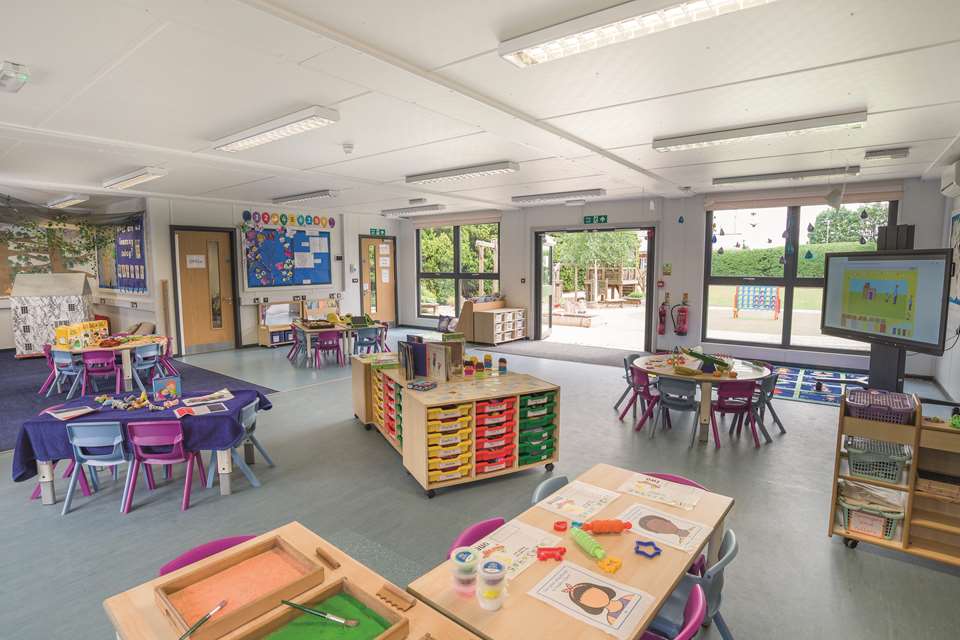Early years funding for three-and four-years-olds to rise by 17p an hour
Catherine Gaunt
Thursday, November 25, 2021
The hourly funding rate paid by the Government to local authorities for the three-and four-year-old entitlements will rise by 17p an hour in most local authority areas in England from April, the Department for Education has confirmed.

However, sector organisations have warned that the increase of just under 4 per cent - while larger than previous increases – does not do enough to compensate for historic underfunding and will not cover statutory rises to the National Minimum and Living Wage, the re-introduction of business rates, and other rising costs.
The increase is also lower than inflation, which is currently running at 4 per cent.
More than 40 areas with the lowest funding rate of £4.44 – will receive an increase of 3.8 per cent - which means that their rates will rise to £4.61 in April 2022.
While the DfE has today (Thursday) confirmed the hourly funding rates for the free early education entitlements in 2022-23 for each local authority, the final rates that early years providers will receive will be confirmed to them by individual councils.
Under the Early Years National Funding Formula (EYNFF), councils must pass through 95 per cent of the funding they receive from the Government for the three- and four-year-old entitlement.
The rates for the funded early years entitlements have been confirmed following an increase of £160m for 2022-23 announced by the Chancellor in last month’s spending review.
In a written statement children and families minister Will Quince confirmed that as a result, funding for the three- and four-year-old entitlements will rise by 17p an hour ‘in the vast majority of areas’.
The Government will also increase the hourly funding rates for all local authorities for the two-year-old entitlement by 21p an hour.
The ‘minimum funding floor’ – i.e the lowest rate paid to councils - for the three- and four-year-old offer will be increased to £4.61 per hour.
The minister explained in the statement that nine local authorities have had their 2021-22 hourly funding rates for three- and four-year-olds protected by the “loss cap” in the formula, to ensure that they do not face large drops to their funding rate. Bristol, Camden, Ealing, Halton, Islington, Lambeth, Southwark, Tower Hamlets, and Westminster will continue to have their 2021-22 hourly funding protected in 2022-23. In practice this means that they will receive no rise to their funding rates.
Meanwhile, funding for Rutland will be increased by 13 pence per hour, in recognition that Rutland’s loss cap protection was only worth 4 pence per hour in 2021-22.
The minister also confirmed that the supplementary funding hourly rate for Maintained Nursery Schools will increase by 3.5 per cent, equivalent to the increase in the hourly funding rates for three- and four-year-olds.
It was also confirmed that the Early Years Pupil Premium (EYPP) funding rate will increase next year from 53p to 60p per hour. Disability Access Funding - an extra payment made to providers to help to make reasonable adjustments within their provision to support eligible three- and four-year-old children with a disability - rise from £615 to £800 per child.
Quince said, ‘Getting to visit early years settings is one of the most life-affirming parts of being Children’s Minister, because I get to see how much care and hard work goes into educating young children and how they respond. Children soak up every early experience, from hearing stories and songs to playing outdoors together or learning to share and communicate – and it’s thanks to the work of the staff who support them every day.
‘That’s why I’m so pleased that we secured this significant increase at the Spending Review to increase the hourly rates childcare providers will receive from next year, as well as increasing the minimum hourly rate that we fund councils for the three- and four-year-old entitlement.
‘It reflects the increasing costs many employers face, in order to protect and support their employees, including rising wages. Alongside this we are also investing millions in better training for staff through our early years recovery work.’
‘Won’t close the funding gap’
The funding rate is also lower than sector organisations and nursery owners had predicted.
Purnima Tanuku, chief executive of the National Day Nurseries Association, said, ‘Although the announcement of an additional £160m for providers has been more positive than previous funding commitments, today’s figures show why the detail really matters.
‘Funding rates historically haven’t covered providers’ costs, so they are playing catch up with years of chronic underfunding. What we have seen is an increase of less than 4 per cent in the two-, three-and four year-old funding rates.
'But wages will be going up much faster than that – the National Living Wage increases by 6.6 per cent next year with higher rises in other minimum wage bands. Inflation is already at 4 per cent and expected to be over 5 per cent in 2022. On top of this, the Government is re-introducing business rates to nurseries which will add an average of £12,600 to a setting’s costs.
‘The 17p per hour increase for three- and four-year-old places for most local authority areas will help providers to cover only some of these costs, but many delivering funded hours will still be out of pocket and will still be suffering a shortfall.'
Commenting, Neil Leitch, chief executive of the Early Years Alliance, said, ‘We welcome clarity on how the funding increase announced at the Spending Review will translate to hourly rates for councils, and importantly, confirmation that rates will see a significantly larger increase than has been the case in recent years.
‘That said, the fact remains that the funding rises published today don’t come close to closing the funding gap identified by the Government’s own policy documents, and many in the sector are rightly concerned that they will still face a struggle to remain viable. Worse still, many providers won’t even find out the funding rates they themselves will be receiving until the last minute, making it impossible to budget and plan.
‘The Government has claimed that this additional funding will more than cover increases in the national living and minimum wages, but even if this is the case – and there is as yet no evidence to support this claim – how can it be right that the early years is given just enough to pay staff the minimum wage at a time when the Government is committing to giving all teachers a starting salary of £30,000?
‘If the Government truly wants to show that it values the early years, it needs to stop giving providers just enough to survive and start giving them what they need to thrive. What we need now is an ambitious vision for the sector – and the substantial investment to back it up.’
Tanuku added, ‘Data released today shows that nine councils will see no change in their funding at all. Providers in these areas will continue to face significant cost increases but with no extra support which is neither fair nor equal.
‘This is why we need ministers and officials to fully review the whole policy to make sure that children’s outcomes are truly at the heart of these decisions and providers are supported to deliver the high-quality early education and care we want for all our children.’
While support for early years disadvantaged children has risen through the EYPP, it remains much lower than that paid through the Pupil Premium for children in schools.
Tanuku said, ‘We know children have missed out on so much during the pandemic and this has impacted most on those from disadvantaged families. We welcome increased support to these children via the Early Years Pupil Premium, but the £342 per year is just a quarter of the support they are entitled to in schools. It is a false economy to short-change early education because it has the biggest impact on children’s life chances.’






